Disclosure: This article contains affiliate links. We may earn a commission from purchases at no extra cost to you, which helps our travel content.
The morning light breaks over the Caucasus Mountains, painting the peaks in hues that no camera could fully capture – though that hasn't stopped me from trying. Most travelers know Sochi as Russia's premier beach resort or as the controversial host of the 2014 Winter Olympics. But beyond the coastal promenades and Olympic infrastructure lies a world that speaks to my soul as both an artist and adventurer: a wilderness of alpine meadows, ancient forests, and peaks that pierce the clouds. Having documented mountain cultures from the Himalayas to the Andes, I found myself drawn to Sochi's lesser-known identity as a gateway to some of Russia's most spectacular hiking terrain. This past summer, I spent a transformative week exploring these trails, sketchbook in hand, discovering that Sochi's true gold medals should be awarded to its natural wonders rather than its sporting venues.
The Forgotten Alpine Paradise
When I mentioned to friends that I was heading to Sochi for a hiking expedition, I was met with raised eyebrows and questions about winter sports. Few realize that when the snow melts, this region transforms into one of Russia's most diverse ecological treasures. The Western Caucasus, a UNESCO World Heritage site, cradles Sochi in a dramatic embrace of limestone peaks, ancient forests, and alpine meadows bursting with endemic flora.
My journey began at Rosa Khutor, the primary Olympic skiing venue now reinvented as a summer adventure base. From my balcony at a mid-range alpine hotel, I watched the morning mist swirl around cable cars ascending into the mountains. Unlike the polished, sometimes sterile atmosphere of European alpine resorts, there's a raw authenticity here – Soviet-era structures standing alongside modern developments, creating a visual timeline of Russia's evolving relationship with its mountains.
As an artist obsessed with how landscapes shape cultural identity, I was struck by how the Caucasus Mountains have historically served as both barrier and crossroads between Europe and Asia. This duality manifests in everything from the architecture to the faces you'll encounter on the trails – a fascinating blend of Russian, Georgian, Armenian, and Circassian influences.
On my first morning, I set out with my trusty hiking daypack and my weathered Moleskine sketchbook, ready to document what I suspected would be Russia's best-kept outdoor secret.
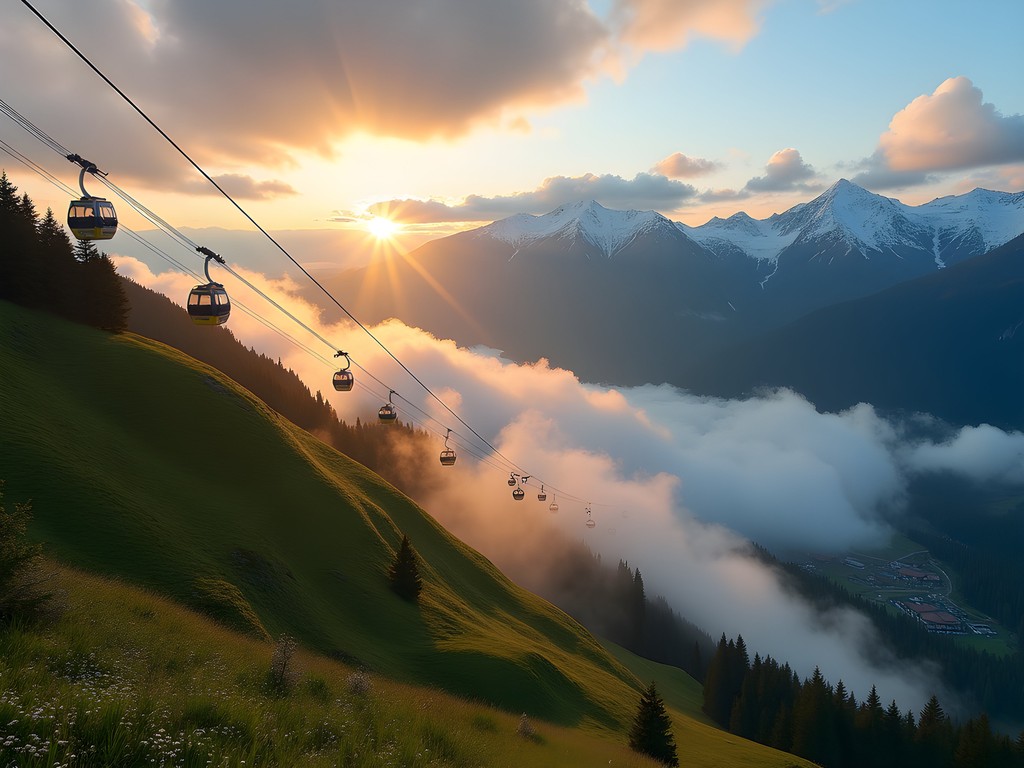
💡 Pro Tips
- Stay at Rosa Khutor for the best access to multiple trailheads
- Purchase a multi-day cable car pass to save money on mountain access
- Learn basic Russian phrases – English is not widely spoken on the trails
The Trails Less Traveled: From Olympic Glory to Wilderness
My week in Sochi was divided between three distinct hiking regions, each offering a different perspective on this multifaceted landscape. The routes around Rosa Khutor provide the most accessible option, with well-marked trails radiating from the upper cable car stations. These paths offer spectacular panoramas without demanding technical expertise – perfect for families or those new to mountain hiking.
For a more immersive experience, I ventured into Sochi National Park, where the Olympic spotlight never reached. Here, amid ancient beech and fir forests, trails wind alongside crystalline rivers and waterfalls. The Agura Waterfalls trail particularly captivated me – a series of cascades cutting through red sandstone cliffs, creating a photographer's paradise of contrasting textures and colors.
The most rewarding – and challenging – hiking came within the boundaries of the Caucasian Biosphere Reserve. After securing the necessary permits (arrange these in advance!), I joined a small guided group for a two-day trek to Lake Kardyvach. This pristine alpine lake, nestled at 1,850 meters above sea level, is the source of the Mzymta River and feels worlds away from coastal Sochi.
The trail to Kardyvach tested my endurance with steep ascents through dense forest before opening to alpine meadows carpeted in wildflowers I'd never seen before. My trekking poles proved invaluable on both the ascents and descents, especially when crossing streams swollen with summer meltwater.
What struck me most was the solitude. Despite Sochi's popularity as a domestic tourist destination, the backcountry trails remain remarkably uncrowded. On our Kardyvach expedition, we encountered only two other hiking groups over two days – a stark contrast to the congested paths of the Alps or even Nepal's more popular trekking routes.
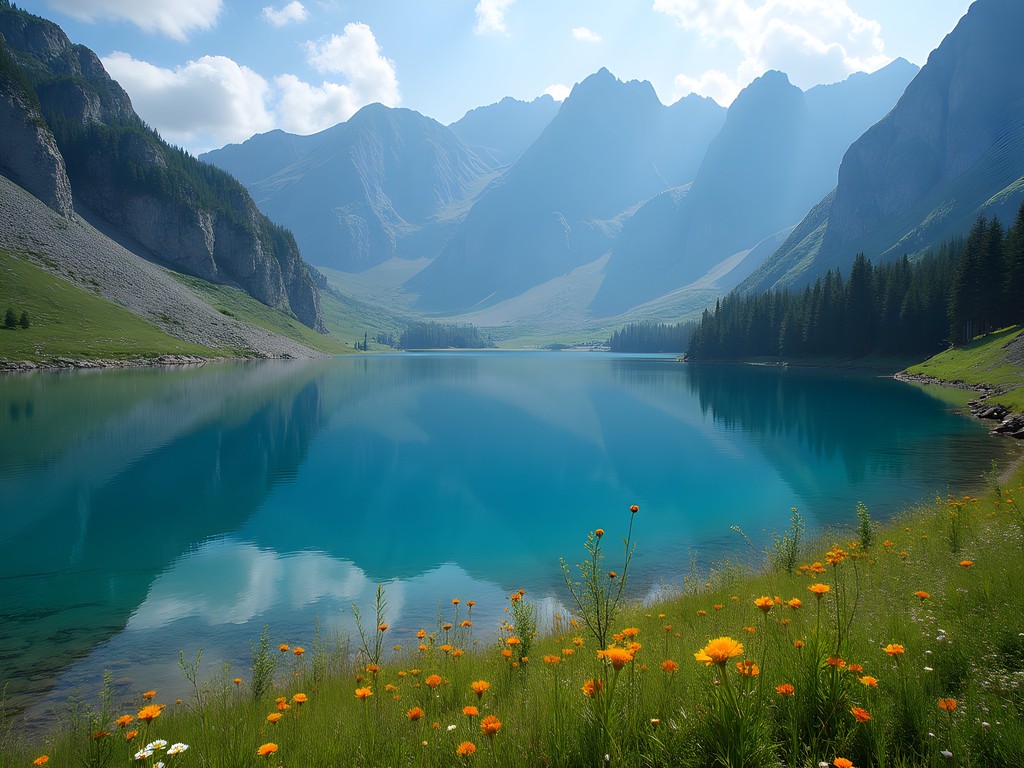
💡 Pro Tips
- Hire a local guide for the Biosphere Reserve – navigation can be challenging and permits are required
- Pack layers – mountain weather changes rapidly even in summer
- Bring water purification tools as mountain streams are your primary water source on longer hikes
Capturing the Caucasus: A Photographer's Paradise
As someone who documents landscapes through both lens and brushstroke, Sochi's mountains presented a thrilling challenge. The light here has a particular quality – crisp and clear in the higher elevations, creating dramatic contrasts between illuminated peaks and shadowed valleys.
For landscape photography enthusiasts, I recommend rising before dawn to capture the first light on the mountains from viewpoints along the Psekhako Ridge. Here, the interplay of light and mist creates ethereal scenes as the sun gradually illuminates the valleys below. My wide-angle lens rarely left my camera during these golden hour sessions, allowing me to capture the sweeping grandeur of the landscape.
The region's biodiversity offers endless macro photography opportunities as well. The Western Caucasus contains over 6,000 plant species, including 1,600 found nowhere else on Earth. I spent one entire afternoon photographing a single alpine meadow, documenting delicate orchids and gentians that painted the landscape in purples and blues.
Wildlife photographers will need patience and longer lenses, but the rewards can be exceptional. The mountains harbor brown bears, wolves, and the majestic West Caucasian tur – a mountain-dwelling goat-antelope with impressive curved horns. I was fortunate enough to spot a small herd of tur on distant cliffs during our Kardyvach expedition, a sighting that local guides assured me was increasingly rare.
Beyond the technical aspects of photography, I found myself drawn to documenting the human elements that punctuate these landscapes. Shepherds' huts dot the higher meadows, some still actively used during summer grazing seasons. These weathered structures, set against towering peaks, tell stories of the region's pastoral traditions that persist despite modernization in the valleys below.
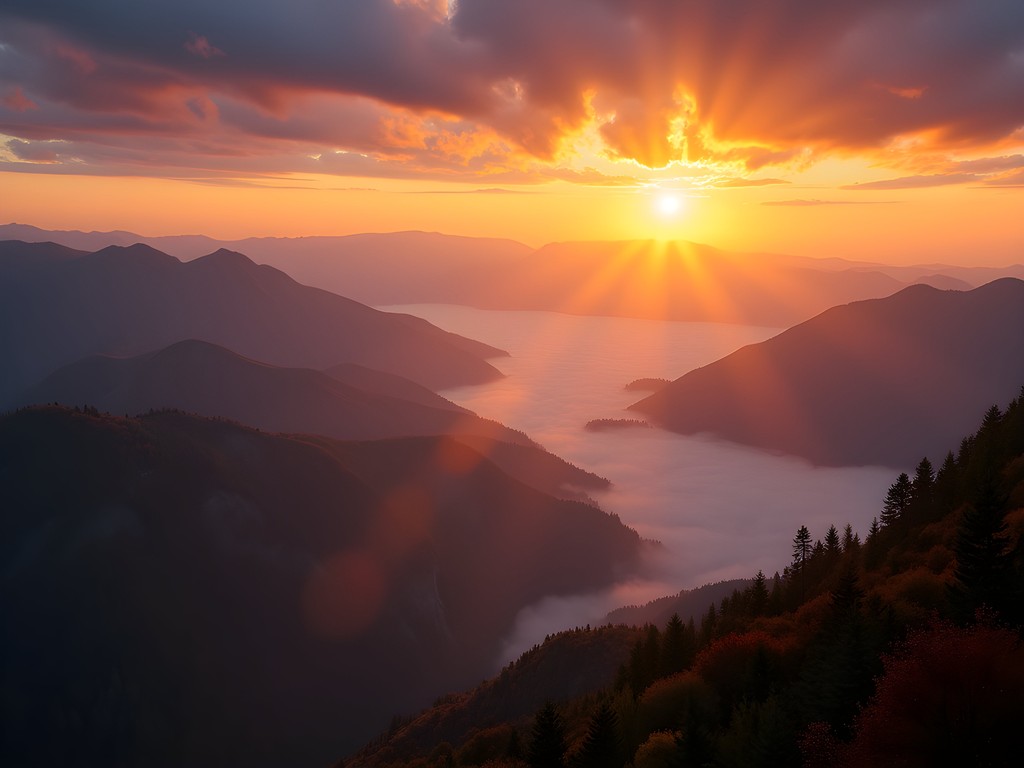
💡 Pro Tips
- Bring extra batteries – cold mornings at elevation drain power quickly
- Pack microfiber cloths for lens cleaning – afternoon thunderstorms create high humidity
- Use a polarizing filter to enhance the vibrant blues and greens of the landscape
Cultural Encounters: Where Mountains Shape Identity
While Sochi's mountains first appealed to me for their natural beauty, it was the cultural tapestry of the region that left the deepest impression. The Caucasus has long been a crossroads of civilizations, and this complex history manifests in fascinating ways along the hiking trails.
In the village of Krasnaya Polyana, now overshadowed by Olympic development, I discovered a small museum dedicated to the Circassian people – the indigenous inhabitants of these mountains whose culture was nearly erased through 19th-century Russian expansion. The curator, an elderly woman with piercing blue eyes, shared stories of traditional mountain life that predated Russian presence, pointing to artifacts that revealed sophisticated adaptations to the alpine environment.
Further into the mountains, cultural layers reveal themselves more subtly. Ancient shepherd paths, some possibly dating back millennia, have been incorporated into modern hiking routes. Stone structures of indeterminate age appear occasionally – some clearly recent shepherds' shelters, others possibly much older.
The culinary traditions of the mountains provided delicious respite after long days of hiking. In small restaurants around Rosa Khutor, I discovered Caucasian dishes that fuel mountain adventures perfectly – khinkali (hearty dumplings filled with spiced meat), khachapuri (cheese-filled bread), and shashlik (marinated grilled meat). These dishes reflect the practical needs of mountain peoples – calorie-dense, preservable, and utilizing ingredients available in alpine environments.
On our overnight trek, our guide Mikhail prepared a traditional mountain dinner over an open fire – a rich lamb stew with foraged herbs that he identified along our route. As we ate under stars brighter than any I'd seen since the Himalayas, he shared folk tales of the mountains – stories of spirits that guarded particular peaks and valleys, revealing how deeply the landscape has shaped local mythology and identity.
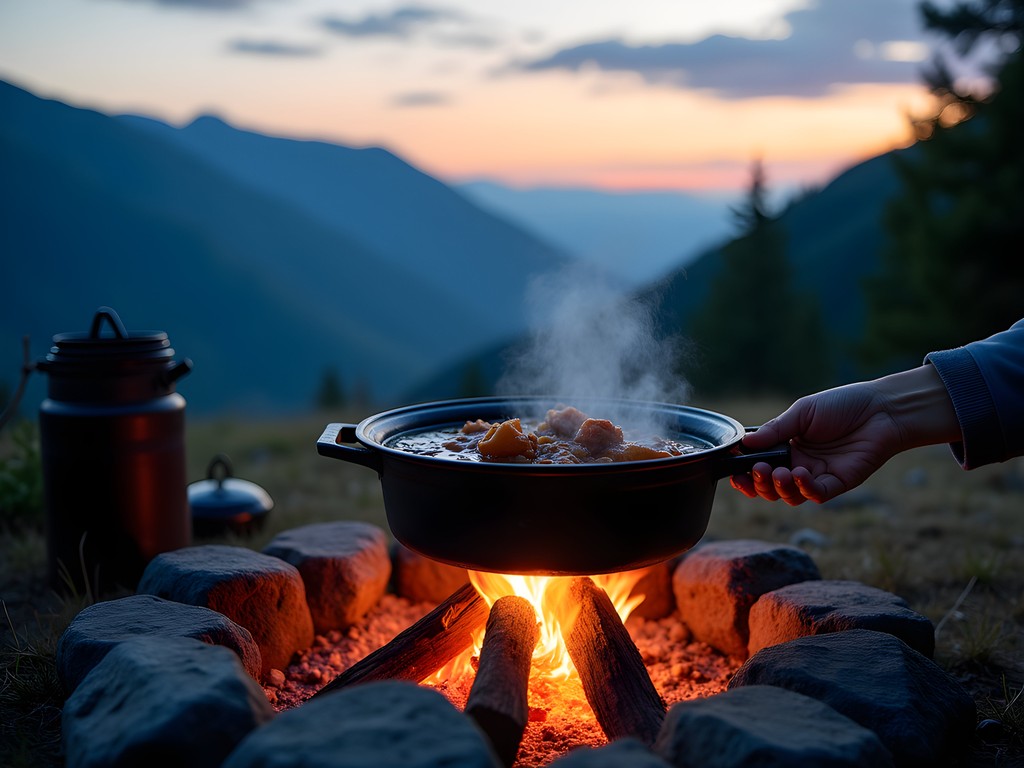
💡 Pro Tips
- Visit the small ethnographic museum in Krasnaya Polyana to understand the region's cultural context
- Try local mountain teas made from wild herbs gathered in the alpine meadows
- Learn about Caucasian folk music – often performed in Rosa Khutor restaurants in the evenings
Practical Planning: Navigating Sochi's Mountain Experience
Organizing a hiking expedition in Sochi's mountains requires more preparation than many European or North American destinations, but the extra effort yields rich rewards in authenticity and solitude.
Lodging options cluster around Rosa Khutor and Krasnaya Polyana, ranging from basic hostels to luxury hotels built for the Olympics. I opted for the middle ground with a comfortable apartment rental that provided kitchen facilities – ideal for preparing hiking lunches and occasional dinners. For extended trips into the mountains, basic mountain huts exist but require advance booking through local guides or tour companies.
Transportation within the region relies primarily on local buses and taxis. While rental cars are available, navigation can be challenging, and some trailheads have limited parking. The efficient cable car system at Rosa Khutor eliminates much of the initial climbing, allowing hikers to start their journeys well above 1,000 meters.
Permit requirements vary by location. Trails around Rosa Khutor and most of Sochi National Park require no special permissions, but the Caucasian Biosphere Reserve demands advance permits and registered guides for most routes. These restrictions, while sometimes frustrating, help preserve the ecological integrity of this UNESCO site.
Language presents perhaps the greatest challenge for international visitors. English is not widely spoken outside major hotels and tourist facilities, and trail signage is predominantly in Russian. I found my pocket translator invaluable for communicating with locals, particularly when arranging transportation or discussing trail conditions.
For those venturing beyond day hikes, proper equipment becomes essential. Summer weather in the Caucasus can change dramatically, with afternoon thunderstorms common and temperature variations of 20°C between day and night at higher elevations. Layered clothing, quality rain protection, and proper hiking boots are non-negotiable essentials.
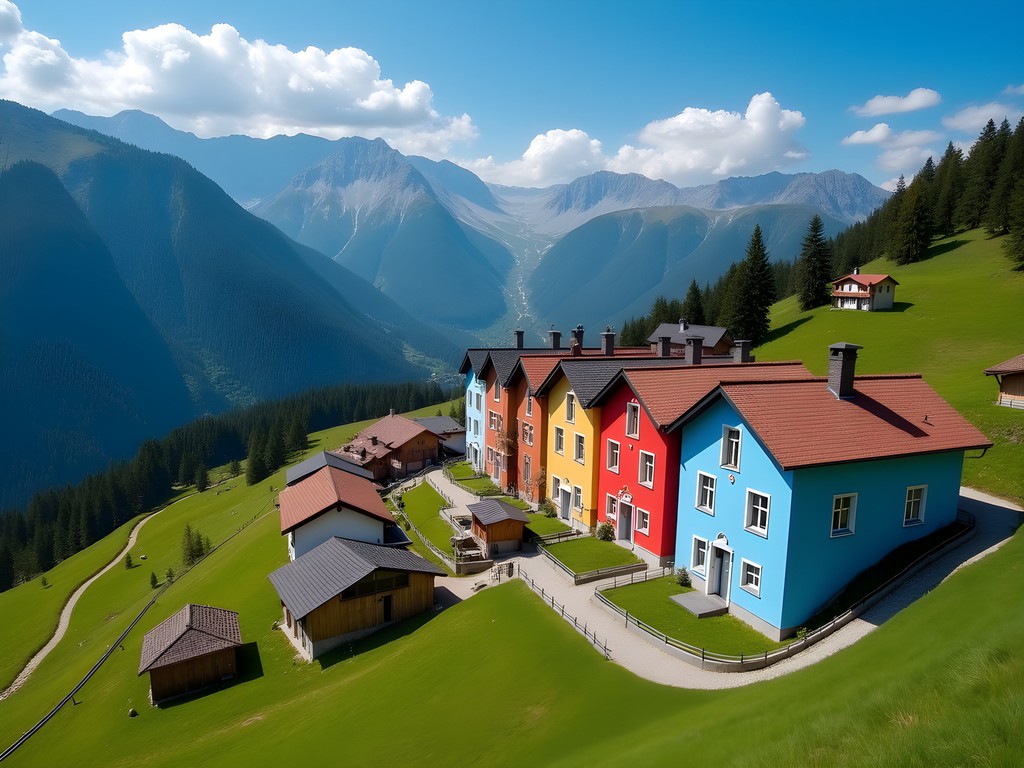
💡 Pro Tips
- Download offline maps using apps like Maps.me or Gaia GPS – cellular coverage is spotty in the mountains
- Book accommodations in Rosa Khutor rather than coastal Sochi for better trail access
- Arrange permits for the Biosphere Reserve at least two weeks in advance
Final Thoughts
As my week in Sochi's mountains drew to a close, I found myself sitting on a boulder overlooking the vast expanse of the Caucasus range, sketchbook open but temporarily forgotten as I absorbed the panorama. These mountains hold stories that few Western travelers have heard – tales written in geological time, in cultural resilience, and in the delicate adaptations of alpine flora and fauna.
Beyond the Olympic infrastructure and resort developments lies a wilderness that rivals any I've encountered across five continents. For those willing to step past the familiar narratives about Sochi, these trails offer a profound connection to a landscape where Europe and Asia have mingled for millennia.
As I finally put pencil to paper, attempting to capture the essence of these mountains, I realized that Sochi's greatest gift to the thoughtful traveler isn't found in its stadiums or beaches, but in these high places where the air clears both lungs and mind. The Olympics may have put Sochi on the global map, but it's the eternal mountains that will call you back.
✨ Key Takeaways
- Sochi offers world-class mountain hiking that remains surprisingly uncrowded
- The best hiking experiences require venturing beyond the Olympic venues into the UNESCO-protected wilderness
- Cultural encounters in the mountains provide context that enriches the natural experience
📋 Practical Information
Best Time to Visit
June through September, with July and August offering the most reliable weather
Budget Estimate
$800-1200 for a week including mid-range accommodation, food, guides, and transportation
Recommended Duration
Minimum 5 days, ideally 7-10 days to experience different trail systems
Difficulty Level
Moderate, With Options Ranging From Easy Day Hikes To Challenging Multi-Day Treks

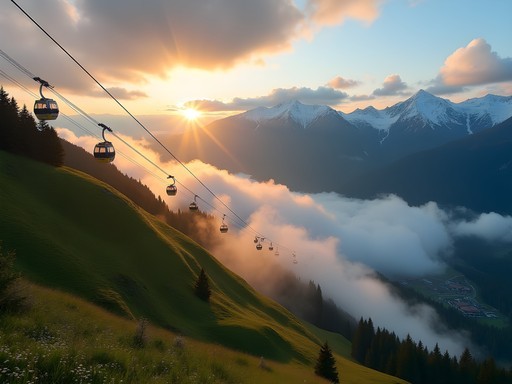
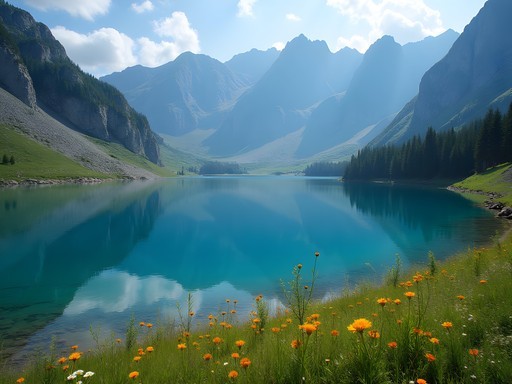
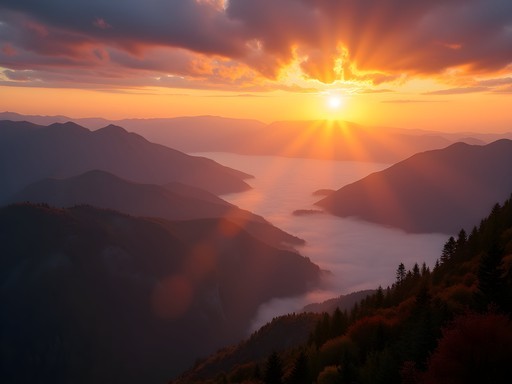
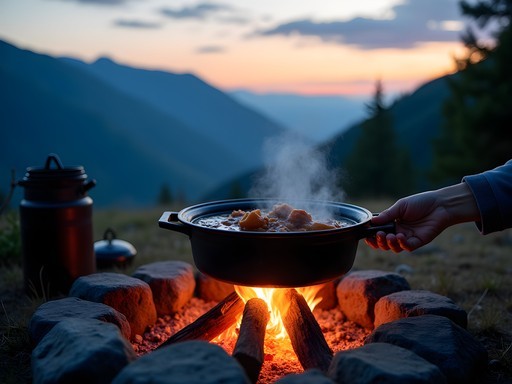
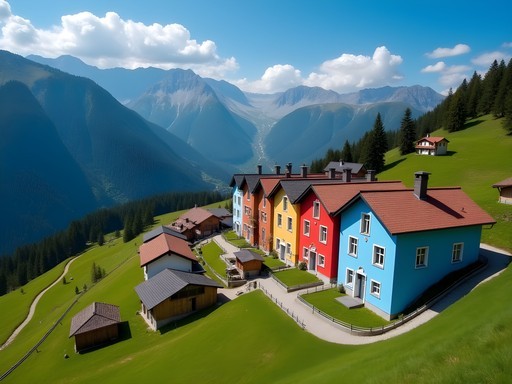


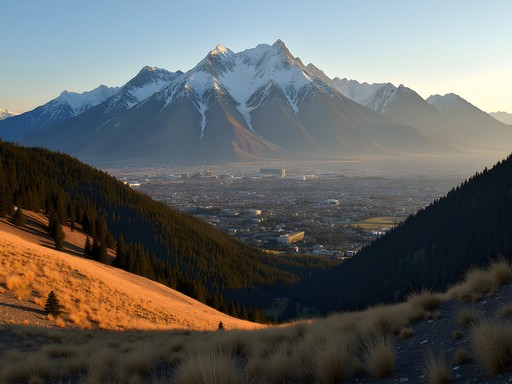
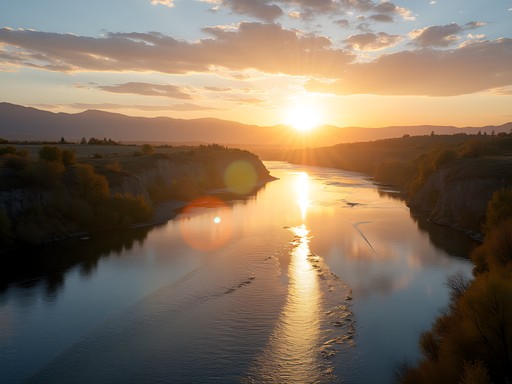
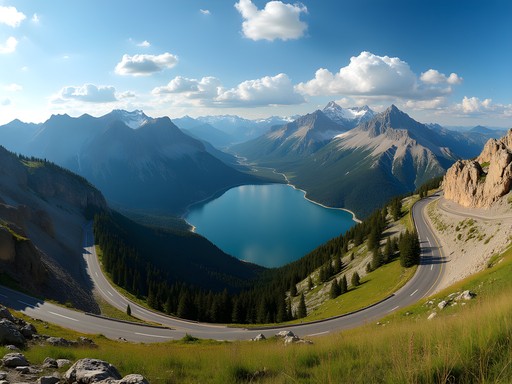
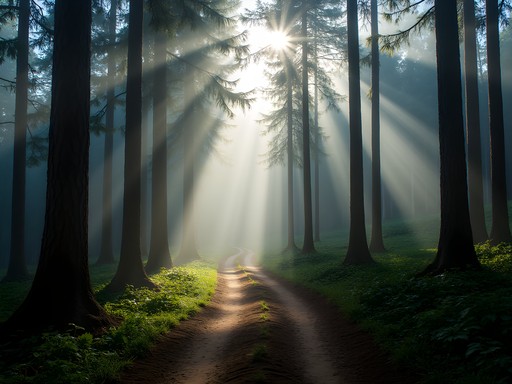
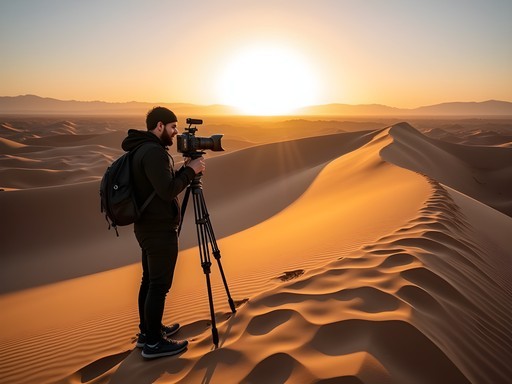
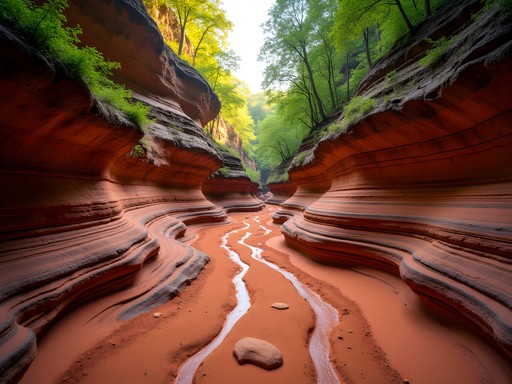
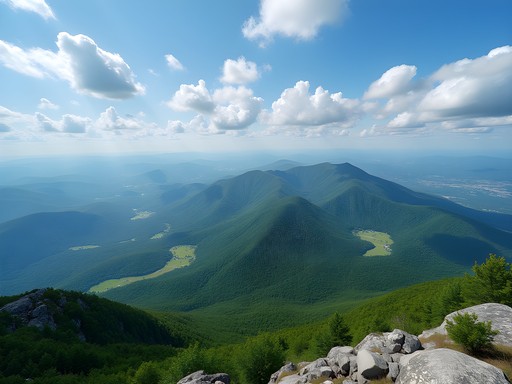
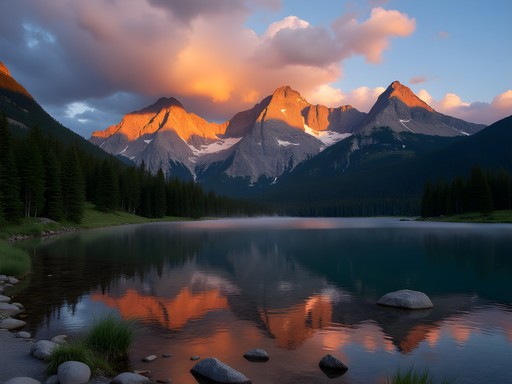
Comments
citylegend
That sunrise shot is unreal 😍
skyfan
OMG the colors in that sunrise photo!!! 😍 How early did you have to wake up to catch that perfect light?
Amit Sanchez
That was a brutal 4:30am wake-up call! But totally worth it for that golden light on the peaks. The mountain huts make it easier since you're already up there.
happyzone
This looks amazing but I'm not super experienced with mountain hiking. Are any of these trails good for beginners? Also how hard is it to get a Russian visa these days?
Amit Sanchez
The Akhun Mountain trail is pretty beginner-friendly! Well-marked and not too steep. As for visas, it's definitely more paperwork than some countries but doable - just start the process early. Check your country's specific requirements.
adventurelife
I'm in the same boat as you - been wanting to try mountain hiking but nervous about jumping in too deep. Good to know there are beginner options!
Sophia Gomez
Amit, this brings back memories! I did a business trip to Sochi in 2023 and managed to squeeze in a day hike near Krasnaya Polyana. The contrast between the resort areas and those wild mountain trails is incredible. One thing I'd add for other travelers - the weather can change FAST up there. I started in sunshine and ended in fog so thick I could barely see the trail markers. Also, finding English-speaking guides was trickier than expected, but the locals were super helpful even with the language barrier. Did you venture into any of the tea plantations on the lower slopes?
Amit Sanchez
Yes! The tea plantations deserve their own post honestly. And totally agree about the weather - I got caught in a surprise storm on day 3. Learned my lesson about packing layers!
adventureace
Those photos are insane! Never thought about Sochi beyond skiing.
Amit Sanchez
Right?? The summer hiking scene there is seriously underrated. Thanks for reading!
hikingexplorer
YES!! Finally someone writing about Sochi's mountains! Been telling people about this hidden gem for years but nobody believes me when I say some of the best hiking in Europe is in Russia. The Fisht Mountain route is INSANE - those limestone formations look like something from another planet. And you can literally hike from snow-capped peaks down to subtropical beaches in the same day. No crowds, raw nature, and some of the most dramatic landscapes I've seen anywhere. Your photos captured it perfectly!
Frank Garcia
Great post, Amit. I've been researching the Caucasus region for months now and Sochi keeps coming up as an underrated starting point. The way you've broken down the trail difficulty levels is particularly useful - most blogs just say 'moderate' without any real context. Quick question: did you arrange guides through local guesthouses or book ahead online? I'm planning a similar trip for spring 2026 and trying to figure out the logistics. The photography section really resonates too - that golden hour light in mountain regions is incomparable.
Amit Sanchez
Thanks Frank! I actually did both - pre-booked one guide for the more technical trails through a Sochi-based agency, but found the best experiences were spontaneous guides I met through guesthouses. Spring should be gorgeous, just check snow conditions for higher elevations.
redblogger7267
This looks amazing! How hard is it to get around without speaking Russian? Also what time of year did you go?
Amit Sanchez
I went in late September - perfect weather! Honestly, the language barrier was challenging in the mountain villages. Download offline maps and maybe learn some basic Cyrillic. Most younger people in Sochi proper speak some English, but up in the trails not so much. Totally worth it though!
redblogger7267
Thanks! That's really helpful
greenlover
Those mountain photos are incredible! Adding this to my bucket list right now.
Douglas Bradley
Excellent portrayal of Sochi's duality, Amit. What fascinates me most is how these mountains have shaped the cultural identity of the region. The Caucasus has historically been a crossroads of civilizations, and you can see this in everything from the architectural styles in mountain villages to the fusion cuisine. I'd recommend visitors take time to explore the ethnographic museums in the area - the one near Lazarevskoye offers fascinating insights into the indigenous Circassian culture that predates Russian influence. The ecological diversity is equally impressive - from Black Sea subtropical zones to alpine ecosystems within just a few hours' journey.
Amit Sanchez
Great point about the ethnographic aspects, Douglas! I wish I'd had more time to explore those museums. The cultural layering in the region is fascinating.
Venture X
Premium card with 2X miles, $300 travel credit, Priority Pass